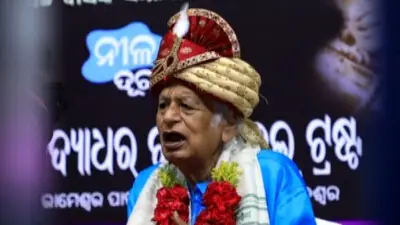Recommended Stories
The Vyapam controversy has the potential of being as damaging, if not more, as the scams which sank the Congress. The reason why it may prove to be worse than, say, the spectrum scam is that Vyapam is unlike any other scandal seen in recent years.
While most of them related to malfeasance, the recruitment for government jobs and admission to educational institutions via the tests conducted by the Vyavsayik Pariksha Mandal (whose acronym is Vyapam) in Madhya Pradesh have been marked by a seemingly unending series of deaths.
There is patently something eerie and sinister about these demises, including the death of the Madhya Pradesh governor's son, which impart a spooky aura to the scandal. It is this unsettling atmosphere which has made union minister Uma Bharati say that she fears for her life.
In spite of being the target of headlines like "40 deaths and counting", the Shivraj Singh Chouhan government made the situation difficult for itself by resisting the calls for entrusting the probe into the deaths to the Central Bureau of Investigation (CBI) till the mounting pressure left him with no alternative but to request the high court to ask the CBI.
But his retreat came too late. The Supreme Court had by then taken the matter into its own hands and asked the CBI to investigate the scam. As a result, there is little scope of repairing the damage done to Chouhan's reputation and also to that of his Bharatiya Janata Party (BJP) and even Prime Minister Narendra Modi.
Curiously, it is Modi's refusal to speak on the various scams involving union ministers like Sushma Swaraj and state governments run by the BJP in Rajasthan and Madhya Pradesh which has drawn comparisons between Narendra Modi and his predecessor, Manmohan Singh, who was also known for being tight-lipped.
It may not amount to overstating the case to say that the present scene bears more than a passing resemblance to the atmosphere of public despair which prevailed in the twilight years of the last government. The Modi government, too, is currently grappling, somewhat ineffectually, with the Sushma Swaraj-Vasundhara Raje-Lalit Modi affair and is now expected to face a backlash in parliament and outside from the Vyapam imbroglio.
It might have been able to shake off some of the mud flung by its opponents if the economy had shown signs of revival. But by the time it does so - perhaps early next year -- no one knows how the murky allegations against the external affairs minister and her family and the two chief ministers will pan out.
The reason why such scandals, whether those involving deaths or not, tend to become more and more of a quagmire for those in power is that the initial reaction of the governments is either to ignore them for being small and inconsequential, or to try and brazen it out later when they become too big.
There are other compulsions, too, like "coalition dharma" which made former prime minister Manmohan Singh turn a blind eye, probably at the behest of Congress president Sonia Gandhi, to the telecom spectrum scam because sacking the then telecom minister, Andimuthu Raja, might have persuaded the latter's party, the DMK, to bring down the government by withdrawing support.
At present, the question of coalition dharma does not arise because Modi runs a one-party - some will say, one-man - government. But his government seems to believe, like its predecessor, that it will be able to ride out the storm.
There are differences, however, between the two situations. While Manmohan Singh and Sonia Gandhi faced little internal opposition when the various controversies were eroding the Congress reputation, Modi is less secure. Already, the BJP's octogenarian patriarch, L.K. Advani, who is supposed to visualize the right path for the party - Marg Darshak - has hinted that those suspected of wrong-doing should step down, as he did when his name was mentioned in the hawala scandal during the Narasimha Rao years in the early nineties.
Advani's observation was evidently aimed at Sushma Swaraj and Vasundhara Raje. The latter, meanwhile, has incurred the wrath of the Rashtriya Swayamsevak Sangh (RSS) because of the demolition of several temples in Jaipur for a Metro construction project.
It is these multiple anti-government voices within the saffron camp which differentiates Modi's tenure from that of the Congress. The prime minister will be in greater trouble if the Supreme Court's monitoring of the Vyapam scam hints at the Chouhan government's culpability -- already suggested by the police report of the suicide of a medical student when her autopsy referred to strangulation.
When Modi was at the crest of the wave which took him to power, he must have expected a relatively smooth run with the economy slowly picking up and he managing to contain the saffron hotheads. But the best laid plans of mice and men often go awry. Modi couldn't have imagined that so many scandals will afflict his regime when it is only just over a year old.
Used as he was to ruling with an iron hand in Gujarat, he is seemingly unprepared to deal with a situation when it is threatening to spin out of control. Now, to recover his poise, he has to act against the suspects, for procrastination will only make things worse.













